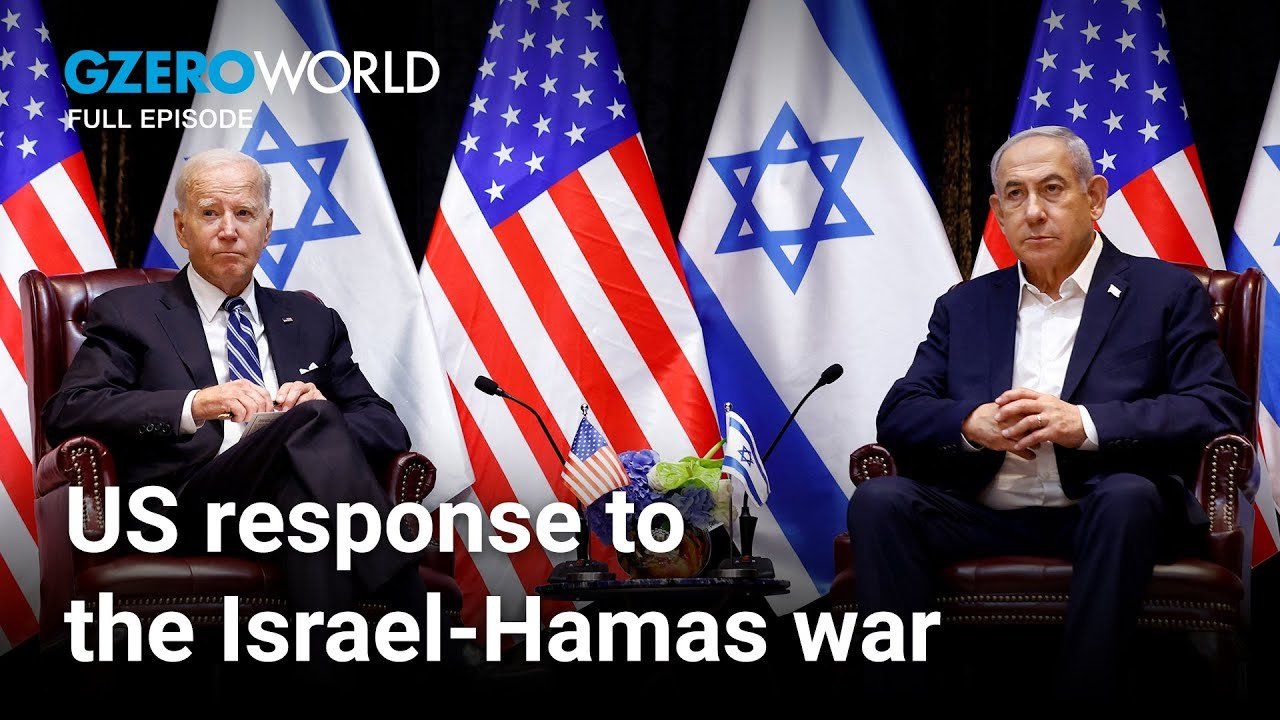GZERO World with Ian Bremmer
America's tightrope walk with the Israel-Hamas war

America's tightrope walk with the Israel-Hamas war | GZERO World

As the death toll mounts in Israel’s war with Hamas, Ian Bremmer looks at the role the US government should play in the conflict and whether that role is as clear-cut today as it was right after the attack on October 7. President Biden made a politically and personally dangerous trip to Israel this week, showing solidarity for America’s closest ally in the Middle East. But the administration must walk a fine line between supporting Israel’s right to defend itself and preventing the humanitarian crisis in Gaza from spiraling out of control.
On this episode of GZERO World, we get the view from both sides of the aisle on Capitol Hill, first with Senator Chris Murphy, the Connecticut Democrat who sits on the Senate Foreign Relations Committee, and then with Republican Representative Mike Waltz of Florida, a member of the House Foreign Affairs committee.
Also: a dispatch from Lebanon. A little over 50 miles from the Israeli border, there are few signs of the violent conflict capturing the world's attention. For now, at least. Further south, there have been almost daily exchanges of rocket fire between the Israeli Defense Forces and Hezbollah, the Iran-backed militant group that dominates southern Lebanon and is a regional power in its own right. GZERO correspondent Fin DePoncier is in Beirut to hear from its diverse population about what they think about their country's precarious position and what it would mean if Lebanon gets dragged into Israel's war with Hamas. Some people see themselves as entirely removed from the conflict, and others would pick up arms to fight, but everyone is bracing for the worst. For now, all eyes are on Hezbollah and the southern border.
In this Quick Take, Ian Bremmer reacts to President Trump’s State of the Union address, calling it “a rehashing of the greatest hits” with little new policy direction.
Small business hiring surged 7% above the 2024 average in December, led by a surprise rally in retail. But with uncertainty still historically high and mounting concerns over tariffs, can this momentum survive 2026? Explore the data behind the resilience of the US small business sector. Get the latest economic insights from Bank of America Institute.